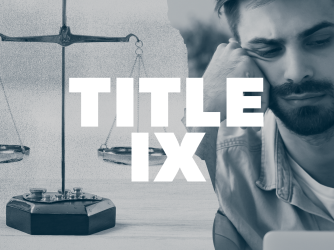Table of Contents
CU-Boulder Community Responds to ‘Offensive’ Blog Post by Professor

Last spring, the University of Colorado-Boulder (CU-Boulder) appointed Steven Hayward as its first Visiting Scholar in Conservative Thought and Policy. The position was created to help expose CU-Boulder students to more conservative views in what some consider an overwhelmingly liberal campus atmosphere. Now, some of Hayward’s recent public statements are causing community members to debate whether the school should take action against him. But those who disagree with Hayward’s viewpoints must remember that his speech is constitutionally protected, and they should consider why Hayward was invited to the university in the first place.
University of Colorado Student Government (CUSG) members argued in an article for Colorado Daily last week that Hayward crossed a line when he argued on Colorado Public Radio that women should respond to sexual harassment by simply slapping the harasser. They recognized that “CU-Boulder has a responsibility to promote a diversity of views,” but argued that “[b]igotry is not diversity.” To the contrary, while it may be socially unacceptable at many universities, “bigotry”—or however you might characterize Hayward’s suggestion—still constitutes a viewpoint that cannot be selectively censored by a public institution like CU-Boulder.
Similarly, CU-Boulder Faculty Assembly Chairman Paul Chinowsky said that some of Hayward’s remarks shared on a non-university blog were “offensive, bordering on ... hate speech.” In a faculty meeting last Thursday, Chinowsky asked whether the faculty should “allow this or condone this” language, but the answer is constitutionally mandated: The university must not punish Hayward for expressing his opinions as an individual on a private blog.
Chinowsky continued: “If any (other) faculty member said this, we would find ourselves in a dean’s office or possibly on suspension for writing this.” Sadly, that may be true as a practical matter—FIRE has certainly seen similar occurrences before. But were an administrator at a public university to take disciplinary action against a professor for questioning the legitimacy of different sexual orientations or identities, that administrator should expect to lose a lawsuit for violating the First Amendment.
Thankfully, not all faculty members are on the fence about how to respond. One professor alluded to the distinction between official sanction and social ramifications:
CU law professor Aya Gruber said while she disagreed with the substance of Hayward's comments, she didn't want the faculty to become the "free speech police."
"I don't like what he said, but I want the right to say that I don't like what he said," Gruber said. "He has an absolute right to say what he wants, but along with that right, he has to expect this kind of backlash when you say things that are deliberately provocative and not very well thought out."
Gruber’s analysis is correct.
There does not appear to be any allegation that Hayward treated certain students differently in class, which would potentially violate CU-Boulder’s policy prohibiting discrimination based on certain classes, including sexual orientation and gender identity. CU-Boulder student Will Hauptman told the Daily Camera that Hayward “treats students with respect and courtesy” and “never belittled anyone’s ideas or statements” in class. Further, the blog entry in question contains no language even approaching a true threat or incitement to violence.
Chinowsky chose to answer his own question about whether Haywood’s speech should be tolerated:
I don't think we should allow that behavior, even if somebody is doing it for effect. ... It's offensive, and there's no place for that in this community. ... We have an obligation to really support all members of the community here, and if we're not, then what are we saying to the students?
CU-Boulder has an obligation to uphold the First Amendment rights of all members of the community, including Steven Hayward. If it does not, it is sending a message to CU-Boulder students (and other faculty members) that they are not safe to express certain opinions on campus. Such a message will chill student and faculty speech and hinder a central purpose of the university—to serve as a “marketplace of ideas.” CUSG members may express their disapproval of Hayward’s message, but the university may not sanction Hayward for his constitutionally protected expression.
Recent Articles
FIRE’s award-winning Newsdesk covers the free speech news you need to stay informed.

FIRE statement on campus violence and arrests

BREAKING: New Title IX regulations undermine campus free speech and due process rights

STATEMENT: Title IX regs mean students less likely to receive justice
